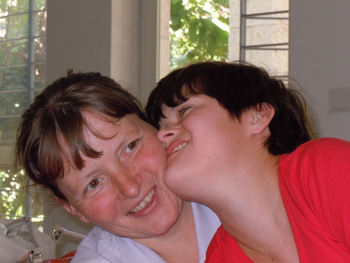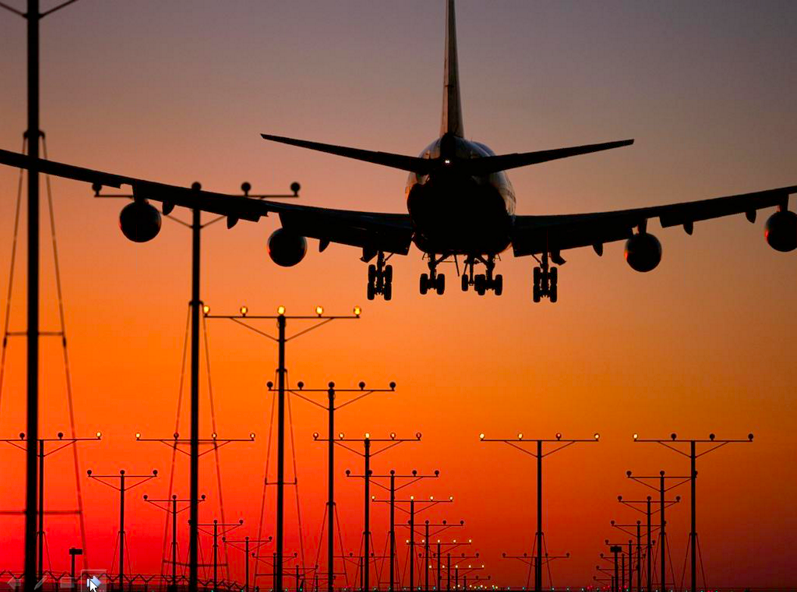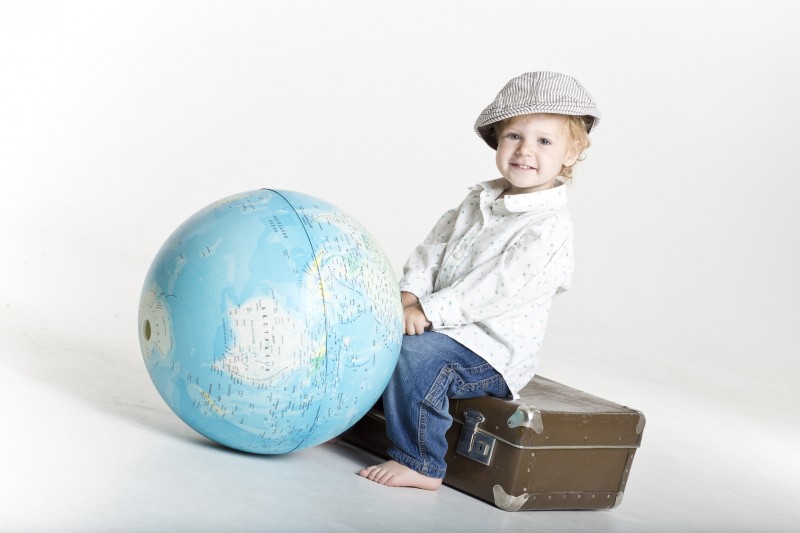
The English translation of this interview was kindly provided by Sure Languages, a translation provider based in Exeter (UK).
It’s great to finally catch up with Elisa for a coffee! I always meet her with great pleasure, even if we’re often in a rush and our ‘small family businesses’ demand our attention.
Elisa is the first person I met when I arrived in Perth two years ago. I still remember her first email, where in her clear and concise style she offered me essential information that made my life so much easier… A real godsend for an expat!
We have kept in touch ever since and we regularly exchange information on the world around us. Elisa’s experience is quite unusual, mainly for two reasons. The first is that she has been moving a big family all over the world: she is a beautiful mum to five children: Francesco (12), Andrea (9), Chiara (7) and twins Matteo and Benedetta (4), a lively troop that fills her days with activities and duties. Especially Benedetta, a sweet young girl with ginger hair and bright blue eyes, who requires Elisa’s undivided attention. Benedetta was born with a disability and she requires constant care. Elisa, thank you so much for sharing some of your precious time with us!
Aleexpat
How long ago did you expatriate?
It all started twelve years ago. We left Italy in 1997, when Francesco was eight months old. Then we moved to Aberdeen, Scotland, for three and a half years, and then went back to Italy. We spent two years in Ravenna and one in our home town of Salsomaggiore. Afterwards we left for The Hague, Holland, where we lived for further three years. This is now our third year in Perth, Australia.
What kind of problems have you encountered moving a big family around so often?
We face the same issues as a normal family – but everything can get a bit out of proportion. To start with, I always make sure accommodation and school are taken care of. For me it’s important to find a house that feels like ‘home’, not just a place to stay, and one that can cater for seven people. I want to feel comfortable and surrounded by all my things, and not like as though I am living in temporary accommodation. This is paramount for the children, too.
How do you deal with the children’s needs, also considering their age difference?
Having many children is never easy. I try and treat each of them as if they were an only child, but I still have to divide my time equally amongst them all. Every time we move, it’s the oldest kids who suffer the most, so I follow them closely early on. I always try and express positive feelings: I explain that discovering a new country is fascinating, that daddy has to move for his job and it’s very important that we all stay together and go with him.
Leaving Holland to relocate to Australia was very upsetting, especially for the oldest kids. Matteo and Benedetta were fine as they were still very young. Francesco and Andrea were very distressed, especially Francesco, who cried for a long time.
When we were about to leave The Hague, some of their best friends were also relocating to other countries (Bulgaria, Canada, Italy and Nigeria). In a way this made things easier, as we explained that even if we had stayed, their friends wouldn’t have been there. We tried to comfort them saying they could keep in touch by email, which we are doing. School is very important – they meet new friends and I get the chance to talk to other mothers and get vital information about our new environment… As for the youngest kids, they just follow suit. All in all, I try and reassure them so they know it’s for the best.
What worries you the most about this “nomadic” life?
I always feel “on loan”, as if I didn’t really belong anywhere. I like it here, but when I meet other mums at the school I can feel uneasy. Some of them have known each other since childhood, were schoolmates or belong to the same social circles… When the novelty wears off – who you are, where you are from, the usual questions – they go back to their closed community, their secret codes… And I feel like an add-on, not part of the group!
I know, I feel exactly the same…
… so much that it’s just easier to make friends with other expats than with the locals.
Does moving a big family help or hinder settling down in a new country? Is it easier to make friends when you have many kids, or do family and housework leave you with no time for anything else?
Making friends is easier when you have kids; at the park or at school there’s always another mum you can have a chat with, a friend your kids can invite in or be invited over to play. I have always made good friends with the mothers of my kids’ friends. I honestly can’t tell how it works if you don’t have children, as I have never found myself in that situation! Children really help you make new friends and other mothers introduce you to your new environment…
Back to your family: you said in Italy you get often asked “All yours, then?” There’s a well-known stigma around big families, as if they were the result of inconsiderate choices. How is this perceived abroad?
Better than in Italy! People do ask questions, but they are more polite and don’t have a go at you. In Italy I was once stopped and asked questions in the middle of a zebra crossing. People go as far as saying “Are you not ashamed?”… But what exactly should I be ashamed of? I have to say, the Italians I have met here have also disappointed me. The typical comment is “No TV, huh?”… People can be really nasty and my patience with these reactions is wearing thin. Luckily, both big families and moving big families are quite common here and people don’t act too surprised. Only once somebody commented, “Sure, Catholic families always have a lot of children!” but I didn’t bother starting a discussion…
In which country have you felt more comfortable as part of a “big family”?
I’d say both here and in the Netherlands.
With five children and your own family far away, do you miss having some help or are you able to get organised on your own?
I can cope by myself and I prefer to do it this way. If there is an emergency, like if one of the kids is poorly, I miss the support of my family and not having their grandmother to help me. I am lucky I can rely on friends, like you, Dee and Gabriella.
Does your husband help you with the housework and the kids or do you have a strict role division?
I am normally in charge of the house and the kids, but my husband is very helpful. He is on lunch duty on Saturdays, and if I need a hand to clean the house he doesn’t mind getting stuck in.
Did the birth of Benedetta change your outlook on expatriation?
Benedetta’s condition was a big shock for all of us. I was pregnant with twins and although doctors had said Benedetta was small, nothing led us to think she would be born with disabilities. I have to say that doctors and nurses were very cold. Maybe it had to do with the language barrier, I’m not sure. We were in the Netherlands at the time and it was a very difficult period.
What upset me the most was that doctors only seemed interested in examining my baby to assess how rare her condition was, but no psychological support was ever made available to us. It took me months to accept the situation… Benedetta’s siblings cope with their sister’s condition incredibly easily; they don’t even notice that she’s different. I wouldn’t say her condition has been an obstacle to our life as expats. This kind of life offers fantastic opportunities for everybody, especially our other children.
As for Benedetta, I have always found amazing doctors who have helped us overcome the challenges we were facing, and language is not a big barrier after all. Although Benedetta doesn’t speak, she understands and is understood by others at the English-speaking nursery she attends.
You’ve lived in many different countries: what are the differences in people’s attitude towards disabilities? Benedetta is still very young and her disability can go unnoticed…
To be honest, I have always found a lot of support. When Benedetta started at the nursery earlier this year, many of the other mums were puzzled as why she was there, as she was very young, could not walk nor speak. Some of the other kids asked the same questions. The teacher provided everybody with a very good answer and explained that God makes us all different: fat and thin, blonde and brunette, and this is the way Benedetta was born.
Last week I was at the doctor’s with Benedetta and Chiara. A girl the same age of Chiara looked at Benedetta and said, “Is that your sister? Why can’t she open her eyes properly?” Chiara looked at Benedetta closely, but couldn’t see anything unusual in her… After a while she grew tired of being asked weird questions, took Benedetta by the hand and went to sit somewhere else!
Australia is a land full of medical support, especially for children with special needs. However, renewing Benedetta’s temporary visa took months of endless bureaucracy, medical appointments and examinations… Do you think this is a “racist” procedure on their side?
We recently applied to renew our visas for a further two years. Apart from Benedetta’s, which took much longer because of her disability, we all got ours easily. This country provides extraordinary help for kids with special needs. However, I believe they try to avoid having to incur extra costs caused by “ill” people who apply to enter the country; for these reasons, controls are especially strict. You could call them ‘racist’, but I go by the belief that, “I am a guest in their country and I have to follow their rules”…
… even if these sound a bit harsh sometimes. What’s in store for the future?
I would like to stay here as long as possible. I love moving around, but I wouldn’t mind putting down some roots now, especially as the kids are getting older. Also, I would like to explore all this country has to offer for disabled children and provide the best possible future for Benedetta.




